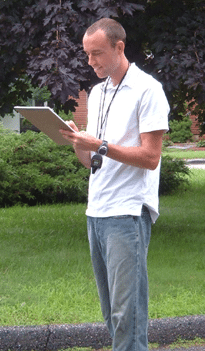 Last week I had the chance to participate in a Coach Chat courtesy of the folks at RunKeeper. We took questions from the audience and I tired to frame all the answers as generally as possible to help as many listeners as possible.
Last week I had the chance to participate in a Coach Chat courtesy of the folks at RunKeeper. We took questions from the audience and I tired to frame all the answers as generally as possible to help as many listeners as possible.
I think the resulting interview was awesome, so I thought I would share the Coach Chat in a different format.
I have edited the video so you can watch and listen to each question and answer individually.
I have also included the audio as one complete file so you can listen as a podcast on your next run.
You can find the entire video and audio file at the end of this post.
If you enjoy this type of post, I will definitely do more of them. Please leave a comment with a yay or neh if you want to see this type of question/answer more often.
Here’s what we covered:
Question #1:
I have been regularly for a few months and suddenly started experiencing pain in my upper right leg. how can I tell if this is muscular or something else? I am really missing running! Can I keep running?
What I discussed:
- How to tell the difference between normal running soreness and an injury
- What to do when you do get injured
- The mistake you should absolutely not make when facing a potential injury
- Why you likely won’t lose any fitness if you do need to take time off
Resources mentioned and further reading
The danger of having an unwillingness to take time off
Scientific symptoms, causes and treatments for common running injuries
The relationship between hip strength and running injuries
Watch the Video
Question #2:
I did my first marathon according to your ”Marathon to finish” in 4 hours 20 minutes and I want on my next marathon (Athens classic marathon) to finish in under 4 hours. What program should I follow and what should my nutrition habits be?
What I discussed
- The role of glycogen when racing the marathon
- How to train your body to use fat as a fuel source to prevent bonking
- Post workout nutrition
- Taking in fluids and gels during training
- Fasted long runs (running long runs on an empty stomach)
Resources mentioned and further reading
Are you putting too much emphasis on the long run
The science of bonking and glycogen depletion
Refueling after a hard workout
Watch the video
Question #3
I realized that I’ve reached certain pace that i can’t run any faster. I’m running around 5’10” per km (8’10” per mile) and I’d like to improve it to something like 4’15” per km ( 6’50” per mile) . Any recommendations for achieving that goal? By the way, 36 old guy with 7 months of running career!
What I discussed
- The importance of long-term development
- Speed versus aerobic endurance
- Picking an appropriate goal for yourself
Resources
The dangers of shooting for a time goal
How training is like investing
A look at the long-term impact of training
Watch now
Question #4
I’m currently running 3 times a week training for my next 10k to get to sub 55 min. I’ve started this training a month and a half ago. I wasn’t running for a long time, more than 1 year. It is common that I get a bad stomach ache after I ran 10k or more that 10K. I’m not eating my meals close to my training. I usually train at 6.30 PM and have a healthy lunch at 1.30 PM and a snack of fruit or cereal bar in the afternoon. I was told it is common for beginners trying harder.
What I covered
- Dealing with stomach issues when training
- Training in the heat
Watch the video
Question #5
I run 4 times a week 10-20k , I’m planning to do my first marathon in September, any recommendations?
What I discussed
- Marathon specific workouts and specific workouts in general
- Long runs and important marathon workouts
Resources
Watch the video
Question #6
Any plans for offering training plans for faster runners? The fastest half marathon training plan is 2 hours – I’d love to see some geared towards ~1:30 runners with emphasis on how to improve speed.
What I discussed
- Why stock and template training plans don’t work for better/faster runners
- The importance of a custom training plan that factors in your strengths and weaknesses
- Comparing the training plans of two marathoners with similar PRs but with different talents
Watch the video
Question #7
Do you think it’s a good strategy, for those of us with bad joints (knees) to reduce our mileage and increase our speed? I’m marathon training on only 2 days/week right now, running a pace that keeps my HR over 165 so I know it’s high quality work, and then resting hard for my joints.
What I discussed
- Is running bad for your knees?
- Why running faster is harder on your joints, tendons and ligaments
Resources
Research on running and long-term joint health
Watch the Video
Question #8
I started running in March and completed my first 5k on June 1st. What’s next? Should I bump up to training for a 10k or stick to 5k‘s for awhile? I want to do another race in September or October, and want to avoid injury.
What I discussed
- The importance of aerobic development
Watch the Video
The Full Video and Podcast
![]() Download the podcast version here
Download the podcast version here
Download directly to your iTunes podcast or directly to your Stitcher Radio app and take this interview on your next run


